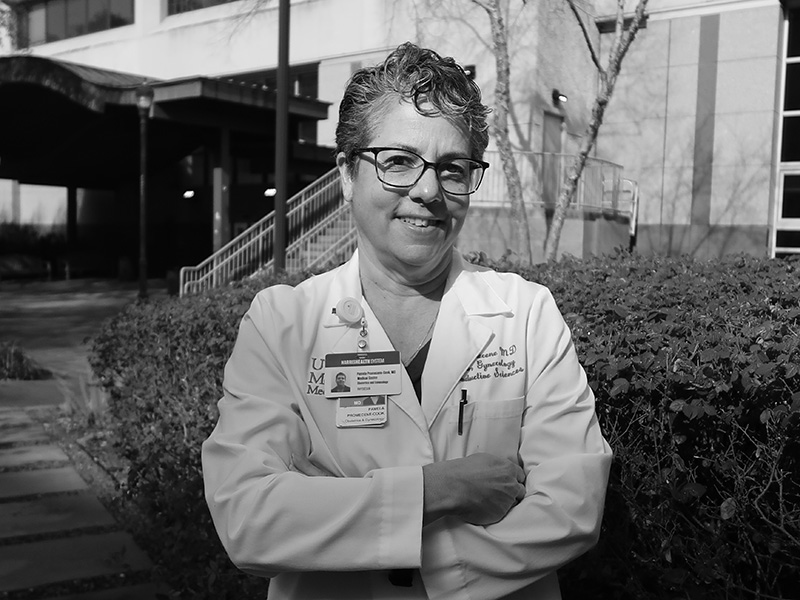Pamela Promecene, MD

Associate Dean for Graduate Medical Education
Professor, Obstetrics, Gynecology, and Reproductive Sciences
I was quite new to my position when COVID hit. I started in September and COVID was in March, so it was a birth by fire. I don’t know how to do this job without COVID.
For the world of graduate medical education, we had to basically continue the mission of patient care and continue to educate the trainees. The residents are incredibly dedicated, flexible, and resilient. They were amazing with their ability to put their heads down and do the work, cover for each other and show up every day when their friends with other careers were working from home. At times, they felt like they were putting themselves and their families at risk. It was encouraging and empowering to work with them in that capacity. I found strength in their strength and resilience. Everyone was affected by the pandemic, but Internal Medicine residents were carrying the ship for a long time.
“This year has been a before and after kind of year in our lives. And we are still finding our way out – getting on the other side of it.”
On the education side, we had to pivot into virtual platforms, which was both good and bad. It’s hard to do clinical education in a virtual platform, especially procedure-driven fields – those you can’t do though telemedicine, you have to have hands-on medicine. Being able to use a virtual platform was helpful for didactic teaching and discussions. A combination of in-person and virtual will help make us better educators, especially in a city that is challenged with distance and traffic. I don’t know if we would have made the shift unless we had to, but when push comes to shove, you just make it work.
Our residents usually graduate in June, and we welcome our new cohorts in June and July. Last year, all of the residency graduations were virtual, which were difficult for all of the programs since this is an important milestone. Orientation and other supportive events also were virtual. Because the Medical School held its virtual commencement in early May, a group of the graduates who had matched to our Internal Medicine residency program elected to start their training early and went straight into caring for really sick COVID patients. That is just one example of how dedicated our students and trainees have been throughout the year.
We are not sure if we will be able to have in-person residency graduations this year, but we are planning for virtual orientation again. We are evaluating how things went last year and hopefully learning to do things better and more efficiently this year.
All of the programs did virtual interviews during the residency recruitment phase. The university provided a license for a program called VidCruiter, which some programs used, and other programs used WebEx. Because in-person interviews are so costly to the individual and the programs, I think we will maintain some portion of a virtual format for the future. I would like for our residents to be able to travel for away electives and for us to host residents for away electives, since this is important for the educational process for those who want to complete a fellowship.
This year has been a before and after kind of year in our lives. And we are still finding our way out – getting on the other side of it. In the future, we will use virtual platforms more routinely and more efficiently, but it won’t replace human contact, or our need to do some things in person – we need to find a happy medium. We need to stay nimble and flexible.
